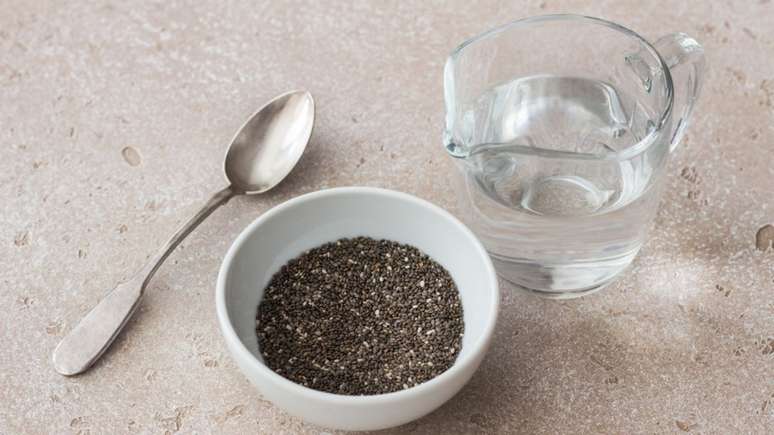This urological condition, called nocturnal enuresis, affects 10% of children and adolescents between the ages of 5 and 17.
It’s natural for parents to worry when their children do wet the bed. When this happens, it’s that inconvenience: you have to change the sheets, turn the mattress, change the baby’s clothes, as well as think about how to deal with the situation. In this regard it is necessary to keep in mind that there is no point in punishing. After all, these types of events are not the child’s fault, but rather a condition urological that needs treatment.
Called by doctors Nocturnal enuresis, this disorder affects 10% of children and adolescents between the ages of 5 and 17. With the aim of raising awareness among parents and healthcare workers about the condition, World Bedwetting Week is celebrated from 3 to 9 June.World Nocturnal Enuresis Week). This year the theme is: “Don’t punish, welcome”. Below, understand what the problem is and what measures should be taken to control it.
What is nocturnal enuresis?
Enuresis is the involuntary elimination of urine during sleep in children aged 5 years and older. It can be classified into two types: mono and non-monosymptomatic. In the first case, nocturnal enuresis is the only symptom and these events occur only at night. In the second, the child also faces problems throughout the day, such as the urge to pee, urine leaks on clothes and a greater frequency of going to the bathroom to urinate. The diagnostic methods and treatment for each condition are different.
This involuntary loss of urine can also be primary or secondary, according to urologist Ubirajara Barroso Jr., secretary general of the International Infant Continence Society (ICCS), one of the organizers of the campaign. “The primary is when the child always urinates in the bed, without long intervals when the bed is dry. The secondary is when the child has nocturnal control for at least six months and loses urine again during the night,” he explains.
The doctor emphasizes that secondary enuresis is often associated with emotional changes and the presence of events stressful.
What are the causes?
Genetics is an important factor. According to Barroso Jr., more than 70% of children who run away at night are the children of a father or mother who has experienced this situation.
According to the doctor, children with enuresis have difficulty waking up, even when they sleep with a full bladder. This is due to a problem activating the brain responsible for awakening us, call locus coeruleus. “Because these children cannot wake up to urinate, they urinate in bed,” explains the urologist.
Another factor that contributes significantly to these phenomena is the poor production of the hormone vasopressin, also called antidiuretic. This substance acts on the kidneys, reabsorbing water to avoid dehydration and reducing the formation of urine during the night. Therefore, when the antidiuretic is produced in low quantities, there is increased urine formation while the child sleeps. According to Barroso Jr. this disorder is present in approximately 50% of children suffering from nocturnal enuresis.
How is the diagnosis made?
The diagnosis is made through observation of clinical history (anamnesis), that is, in a detailed conversation with the patient and parents, the healthcare professional tries to obtain information and identify symptoms.
Barroso Jr. explains that, in this context, an important question that doctors ask concerns the presence of urinary symptoms during the day. “When they are not present, i.e. when enuresis is the only symptom, there is no need for specific tests. When there are daytime symptoms, tests such as ultrasound and uroflowmetry should be carried out to evaluate the urinary flow”, he explains.
What parents shouldn’t do
Enuresis usually resolves spontaneously, so before thinking about treatment, Barroso Jr. says the main measures to address the condition are related to the behavior of parents and caregivers. Therefore he recommends, first, that the family pay attention to what should not be done.
in the first place, avoid punishmentAfter all, children don’t wet the bed out of laziness or negligence. It is also necessary to avoid waking children several times during the night to urinate, as this does not speed up the resolution of the disorder. In fact, it will only tire parents and children.
Furthermore, Barroso Jr. does not recommend putting diapers on children undergoing treatment at night, as this causes the persistence of enuresis. It is important to keep in mind that it is normal to wet the bed before the age of 5. Therefore treatment is only possible from that age, but also recommended from 6 to 7 years old.
Behavioral measures
In addition to the recommendations above, some changes in habits can help control enuresis, such as:
- Drink liquids during the day, avoiding drinking before going to bed;
- Consume dinner at least two hours before going to bed, so that the liquids consumed during the meal are urinated before the child goes to sleep;
- Prepare the last meal of the day with little salt and without caffeine to reduce urine production during the night;
- Limit fluid intake after dinner;
- Urinate before going to bed.
According to Barroso Jr., these actions are sufficient to control 18% of cases and should also be performed during other types of treatment.
Treatments
When more specific therapies are needed, medications and the use of a bedwetting alarm are options. The drug is desmopressin, a compound similar to antidiuretic hormone whose production is reduced during the night. The medicine reduces urine production while the baby sleeps, helping to control nighttime urination.
The enuresis alarm is a device equipped with a humidity sensor and has the purpose of waking up those who take care of the child to take him to the bathroom to urinate. This act causes him to gradually learn to control his urine while he sleeps. Developed by Barroso Jr. in collaboration with urologist Andrew Kirsch, head of the urology service at Emory University in Atlanta, the enuresis alarm is composed of a humidity sensor, a sound circuit and a contraction stimulation of the pelvic floor muscles. . It is a garment that the child wears while sleeping. When the humidity sensor is activated, in addition to triggering an alarm (sent to the mobile phone, reducing the noise), it activates a stimulus for the contraction of the external sphincter, favoring the containment of urine.
Source: Terra
Ben Stock is a lifestyle journalist and author at Gossipify. He writes about topics such as health, wellness, travel, food and home decor. He provides practical advice and inspiration to improve well-being, keeps readers up to date with latest lifestyle news and trends, known for his engaging writing style, in-depth analysis and unique perspectives.








